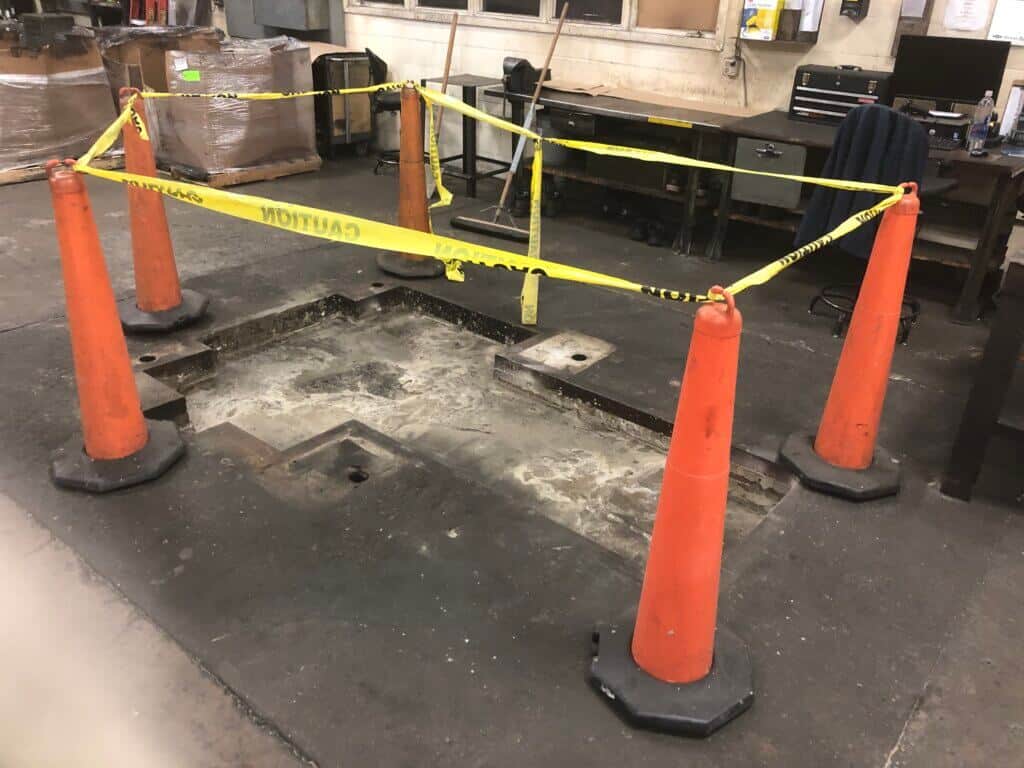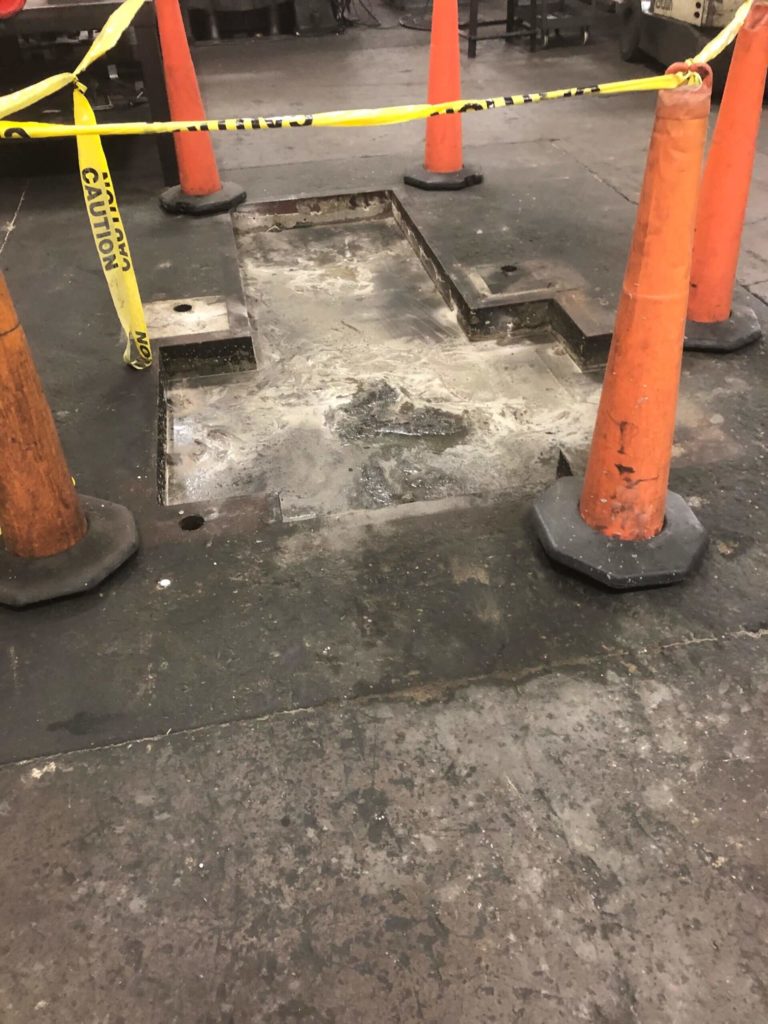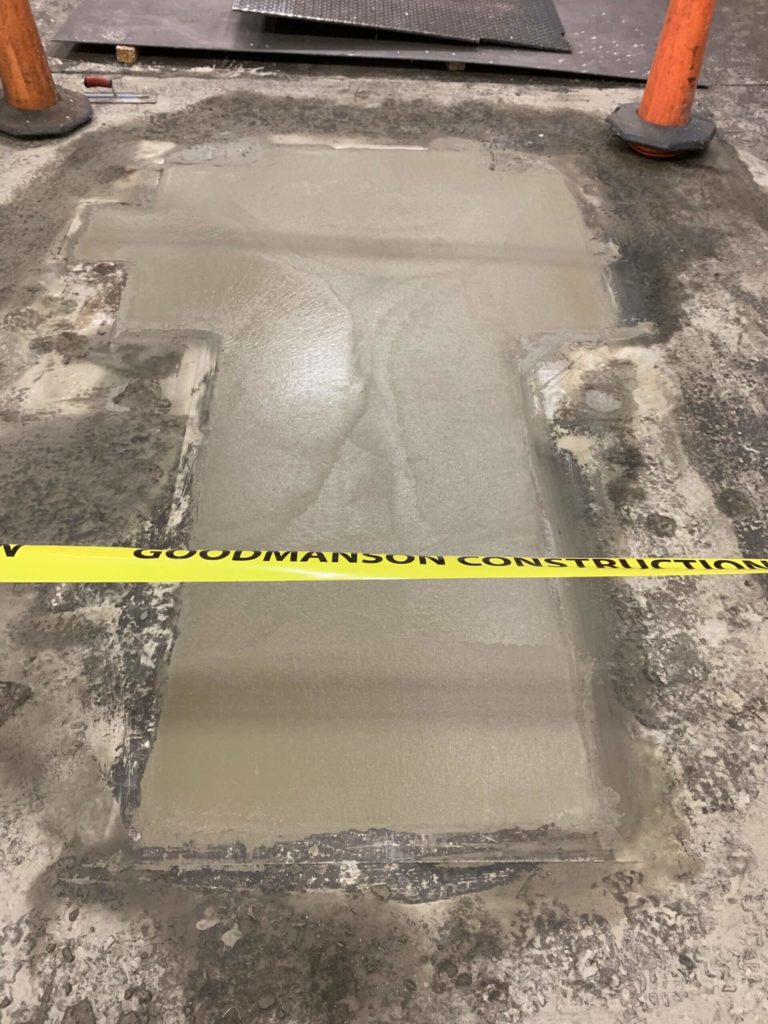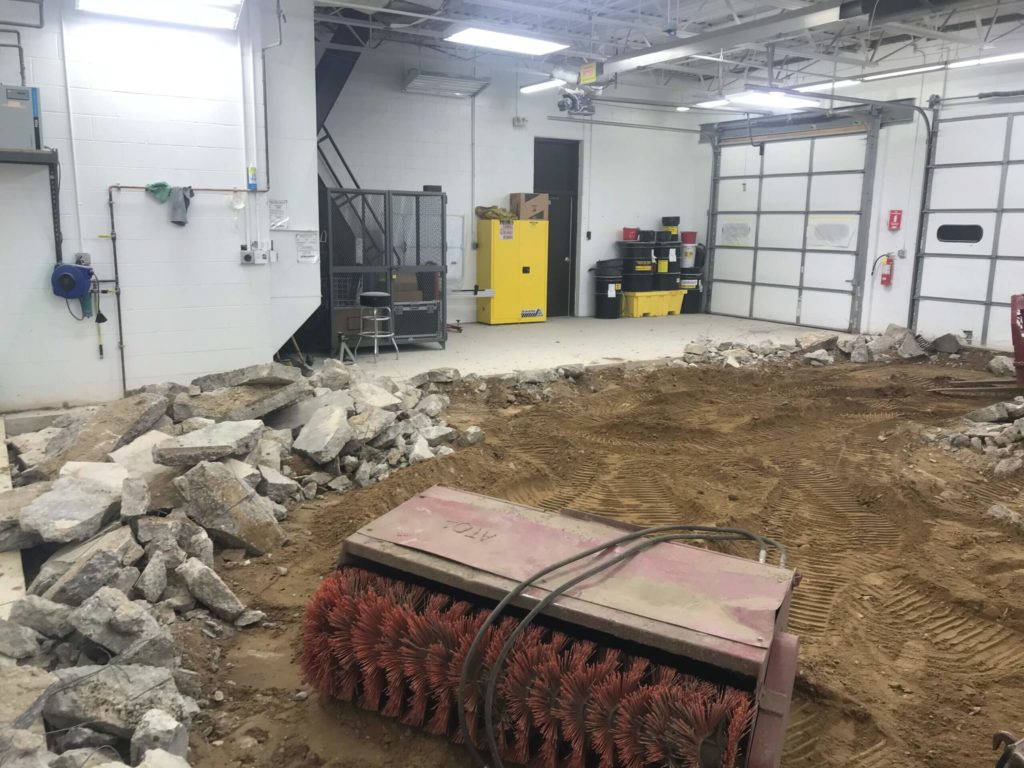What are Machine Foundations?
Machine Foundations are specially engineered foundations built underneath machines that have frequent vibrations or weigh a lot or have a mechanical motion that results in a lot of force being produced.
Why Do Some Machines Need a Special Machine Foundation?
As strong as concrete is, just like any other material it is subject to different forces. Shear forces. Lateral forces. All kinds of forces. Including the Force that binds the galaxy together. Sorry, Star Wars reference. Couldn’t help myself.

Now, if you hit a material with a moderate force once, it’s not going to cause any problems. If you hit it over and over and over again you start to destabilize the material and break apart the bonds that hold it together. A strong vibration is like hitting a material rapidly and constantly, and if that persists over a long period of time then eventually that material is going to fail.
And the good news doesn’t stop there. Not only can the material underneath fail, but if you’re not properly anchoring your machine to a proper foundation to absorb the force coming off the machine, those forces can reverberate back into the machine itself. This is going to cause additional wear on your machine and decrease its lifespan.
What Kind of Machine Foundation do I need?

There is no catch-all solution for machine foundations. Machine foundations depend on a variety of factors and have to be engineered precisely to fit your space and your machinery. There is no one-size-fits all machine foundations.
There are plenty of ways to bog yourself down with equations and engineering physics and if you want to spend your time learning about that then click here to read more on the science and engineering behind machine foundations.
But for our purposes, and yours, there are several questions you and your project estimator are going to want to answer before you go ahead with your project. We are going to group these questions into two categories: the machine and the ground.
And for the professional opinion, we asked our Project Designer Jake Wegscheider for some of the questions he asks his customers before he gives them a proposal for their project.
The Machine

First and most obviously we need to know the dimensions of the machine you’re installing. This is going to tell us the length and width of the slab that we will install for the machine foundation.
We also need to know the precise weight of the machine. This will help us design the proper thickness of the slab, its composition and help calculate the base course or whether you will need footings for the machine foundation.
Lastly, and probably most importantly, we need to know what your machine will be doing in terms of the forces it’s going to be putting off.
Does the machine do a compaction every 5 minutes? Does it just put off a vibration? How strong are those forces? Knowing what your machine does and what force it puts off to do that work is going to tell us about the design of the machine foundation.
The Ground
For a primer on this, check out our blog on excavation and retaining walls.

Your building is built on ground. It might surprise you to know just how little concrete is between you and the ground below (some older industrial buildings only have a 4 inch slab between them and the ground). And what that ground is composed of has a massive impact on your machine foundation.
There aren’t a lot of good options for soil in Minnesota. If your building is an old one, you might find that it was built on sand. They used sand in the old days of construction because it was cheap and it filled in voids in the earth very well. Before the days of advanced compaction technology, sand was the name of the game.
You could find clay, and likely you would, because clay is the primary type of soil you find in Minnesota. Clay is not good to work with because it forms into brittle clumps when compacted and will not take much to break it with the forces coming from your machine.
You could also find just plain dirt. If your industrial building was built on old farmland, you might find dirt. Dirt is just decomposed matter and like clay or sand it isn’t good for compaction or for machine foundations. It is good for growing vegetables, but that’s not what you’re trying to do. Unless of course you just want to abandon this whole project and close your business and open up a community garden.
What Kind of Soil do I Need for a Machine Foundation?
That’s the wrong question to ask. A Machine Foundation can technically go on any soil. What we care about as industrial concrete contractors is what soil modification will get you the best results for your machine foundation and get you to your business goals.
If your machine folds large sheets of cloth then we want that machine folding cloth for many years to come with as little maintenance as possible. If your machine presses ceramic ducks driving monster trucks and smoking cigars then we wonder what kind of market you’re in and what the returns on that activity are but also we want your machine pressing those ducks for decades and decades and decades. Our team at Goodmanson will ensure the specialty ceramic duck market will fail before the machine foundation does.
For the purposes of machine foundations, class 5 gravel or recycled concrete, properly compacted, is the right kind of base for a durable foundation.
Will I Need Footings for my Machine Foundation?
This all depends on the factors we mentioned above. Sometimes the machine’s weight alone warrants constructing footings. Sometimes it’s the nature of the motion and the strength of the forces the machine puts off.
The answer is not always yes and it’s not always no. Like we said before: there is no one-size-fits-all answer. There is only the answer that takes into account your unique circumstances and your business goals. And ultimately, the answer that gets you to where you need to be is the one we care about.
And you get that answer by scheduling a free estimate with one of our trained estimators. They’re the only ones who can tell you what specifically you need to reach your goals and get the results you want.
Finding a Quality Contractor to Build Your Machine Foundation
One of the most important aspects of building a machine foundation in your building is finding a quality contractor to trust with the job. The good news is, Goodmanson is a trusted and experienced contractor that will get the job done right every time. If you would like to learn more about our process or you would like to request an estimate, contact us today. We would love to work with you!
If you want to learn more about Goodmanson or our past work, we recently put together a case study from a concrete machine foundation we did for Die-Cut in Minneapolis. Here’s the process for building the machine foundation for them.

